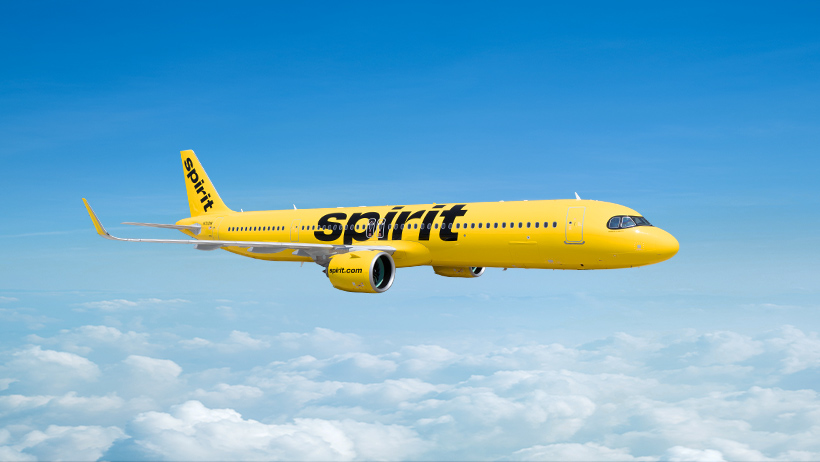In a recent decision, U.S. District Judge William Young in Boston has blocked JetBlue Airways' planned $3.8-billion acquisition of Spirit Airlines. The judge agreed with the U.S. Department of Justice, stating that the deal was anticompetitive and would harm ticket buyers.
This ruling, Reuters noted, marks a victory for the White House in its efforts to prevent further consolidation in the U.S. airline industry.
Impact on the Market
The Associated Press reported that the acquisition would have created a merged entity that controls 10.2% of the domestic market, challenging larger carriers' dominance. However, Judge Young recognized that the deal would likely increase competitive pressure on these larger carriers.
Despite this, he highlighted the harm that would befall Spirit Airlines and its unique, low-price model. This ruling raises concerns about the viability of other proposed mergers within the industry.
Elimination of Low Fares
Judge Young noted that the acquisition would eliminate Spirit Airlines' low fares and its ability to pressure other airlines, including JetBlue, to reduce prices. When Spirit enters a market, rivals typically lower prices by 7% to 11%. Consumers value this unique, economical product option, and its removal is seen as a tangible harm.
President Joe Biden hailed the ruling as a victory for consumers, emphasizing the importance of lower prices and more choices. Spirit Airlines' future is questioned as the carrier has struggled financially due to rising operating costs and persistent supply chain issues. The ruling led to a significant drop in Spirit's shares and a slight increase in JetBlue's shares.
The Courthouse Doors Remain Open
Both JetBlue and Spirit Airlines have the option to appeal the ruling. While the ruling favors the Justice Department, Judge Young did not completely bar any combination of the two companies. He said the deal could be revisited if additional asset divestitures are made.
This ruling has broader implications for the U.S. airline industry and its ongoing consolidation efforts. It signifies a concerted effort to protect fair competition and prevent further concentration of market power. The fate of other proposed mergers, such as Alaska Air's acquisition of Hawaiian Airlines, may now be scrutinized.
Judge Young clarified that the courthouse doors remain open should the defendant airlines choose to pursue the deal again. This leaves room for future negotiations or modified proposals that address anticompetitive concerns and protect consumer interests.



 Uber Ordered to Pay $8.5 Million in Bellwether Sexual Assault Lawsuit
Uber Ordered to Pay $8.5 Million in Bellwether Sexual Assault Lawsuit  Missouri Judge Dismisses Lawsuit Challenging Starbucks’ Diversity and Inclusion Policies
Missouri Judge Dismisses Lawsuit Challenging Starbucks’ Diversity and Inclusion Policies  SpaceX Prioritizes Moon Mission Before Mars as Starship Development Accelerates
SpaceX Prioritizes Moon Mission Before Mars as Starship Development Accelerates  Trump Family Files $10 Billion Lawsuit Over IRS Tax Disclosure
Trump Family Files $10 Billion Lawsuit Over IRS Tax Disclosure  Trump Lawsuit Against JPMorgan Signals Rising Tensions Between Wall Street and the White House
Trump Lawsuit Against JPMorgan Signals Rising Tensions Between Wall Street and the White House  Trump Administration Sued Over Suspension of Critical Hudson River Tunnel Funding
Trump Administration Sued Over Suspension of Critical Hudson River Tunnel Funding  Sony Q3 Profit Jumps on Gaming and Image Sensors, Full-Year Outlook Raised
Sony Q3 Profit Jumps on Gaming and Image Sensors, Full-Year Outlook Raised  Norway Opens Corruption Probe Into Former PM and Nobel Committee Chair Thorbjoern Jagland Over Epstein Links
Norway Opens Corruption Probe Into Former PM and Nobel Committee Chair Thorbjoern Jagland Over Epstein Links  Toyota’s Surprise CEO Change Signals Strategic Shift Amid Global Auto Turmoil
Toyota’s Surprise CEO Change Signals Strategic Shift Amid Global Auto Turmoil  CK Hutchison Launches Arbitration After Panama Court Revokes Canal Port Licences
CK Hutchison Launches Arbitration After Panama Court Revokes Canal Port Licences  Google Halts UK YouTube TV Measurement Service After Legal Action
Google Halts UK YouTube TV Measurement Service After Legal Action  TSMC Eyes 3nm Chip Production in Japan with $17 Billion Kumamoto Investment
TSMC Eyes 3nm Chip Production in Japan with $17 Billion Kumamoto Investment  SpaceX Pushes for Early Stock Index Inclusion Ahead of Potential Record-Breaking IPO
SpaceX Pushes for Early Stock Index Inclusion Ahead of Potential Record-Breaking IPO  SoftBank Shares Slide After Arm Earnings Miss Fuels Tech Stock Sell-Off
SoftBank Shares Slide After Arm Earnings Miss Fuels Tech Stock Sell-Off  New York Judge Orders Redrawing of GOP-Held Congressional District
New York Judge Orders Redrawing of GOP-Held Congressional District  Nvidia CEO Jensen Huang Says AI Investment Boom Is Just Beginning as NVDA Shares Surge
Nvidia CEO Jensen Huang Says AI Investment Boom Is Just Beginning as NVDA Shares Surge 































